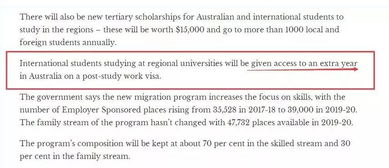英国非白人移民利弊论文
Title: The Pros and Cons of NonWhite Immigration in the United Kingdom
Introduction:
The issue of nonwhite immigration in the United Kingdom is complex and multifaceted, sparking debates across various sectors of society. This essay aims to delve into the advantages and disadvantages of nonwhite immigration, exploring its impacts on the economy, culture, and social fabric of the nation. By examining both sides of the argument, we can gain a deeper understanding of this significant issue.

1. Economic Benefits:
Nonwhite immigration contributes significantly to the UK's economy in various ways. Firstly, immigrant workers often fill labor gaps in sectors such as healthcare, construction, and hospitality, bolstering productivity and driving economic growth. Additionally, skilled immigrants bring expertise and innovation, enhancing competitiveness and fostering entrepreneurship. Furthermore, immigrant consumer spending stimulates demand, supporting local businesses and industries.
2. Cultural Enrichment:
Diversity resulting from nonwhite immigration enriches the cultural landscape of the UK. Immigrants bring with them unique traditions, languages, and perspectives, contributing to a vibrant and dynamic society. Cultural exchange fosters tolerance, empathy, and mutual understanding, promoting social cohesion and harmony. Moreover, exposure to diverse cultures broadens horizons, fostering creativity and innovation in various fields, including arts, cuisine, and fashion.
3. Social Challenges:
However, nonwhite immigration also poses challenges to the UK, particularly in terms of social integration and cohesion. Cultural differences and language barriers may hinder social interaction and lead to ethnic enclaves, limiting opportunities for meaningful integration. Moreover, competition for resources and public services can strain social cohesion, fueling tensions and exacerbating inequalities. Additionally, concerns about cultural dilution or erosion of national identity may arise, leading to resistance or backlash against immigration.
4. Political Implications:
Nonwhite immigration carries political implications, influencing public opinion and shaping policy agendas. Immigration debates often become politicized, with various parties and factions advocating for different approaches. Public perception of immigration, influenced by factors such as media representation and economic conditions, can sway electoral outcomes and policy decisions. Moreover, immigration policies, including visa regulations and border controls, directly impact the flow and composition of immigrant populations, shaping the demographic landscape of the UK.
5. Recommendations:
To harness the benefits of nonwhite immigration while mitigating its challenges, policymakers and stakeholders must adopt a comprehensive and inclusive approach. Investing in programs that facilitate social integration, such as language classes and cultural exchange initiatives, can foster crosscultural understanding and cohesion. Moreover, promoting diversity and inclusion in workplaces and educational institutions can harness the full potential of immigrant talent and creativity. Additionally, addressing underlying socioeconomic disparities and providing support to marginalized communities can reduce social tensions and promote equitable opportunities for all residents.
Conclusion:
In conclusion, nonwhite immigration in the United Kingdom presents both opportunities and challenges across economic, cultural, social, and political dimensions. By critically examining its impacts and addressing underlying issues, the UK can navigate the complexities of immigration and build a more inclusive and prosperous society. Embracing diversity and fostering social cohesion are essential steps towards realizing the full potential of immigration as a driver of progress and enrichment.











